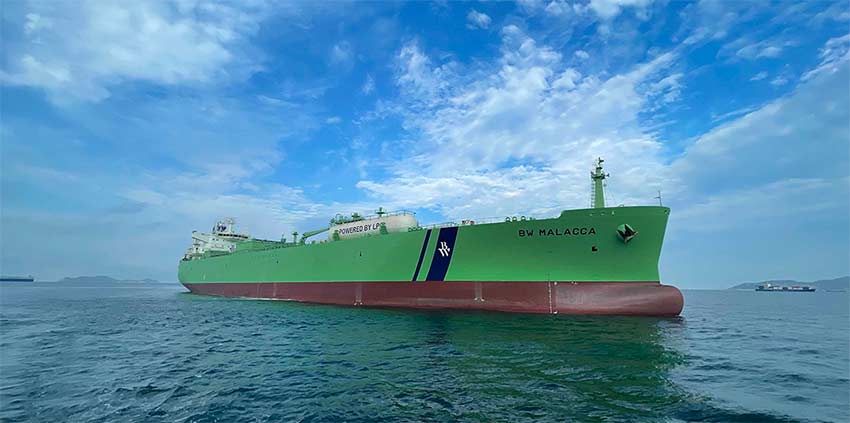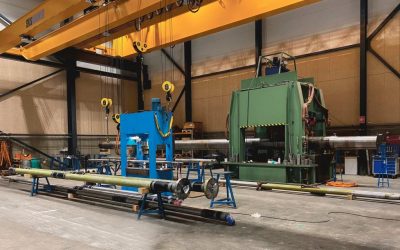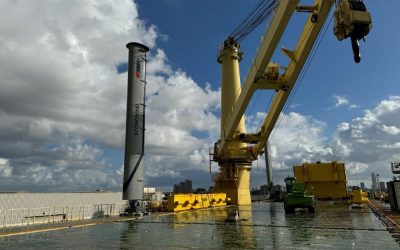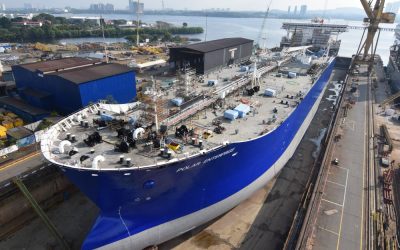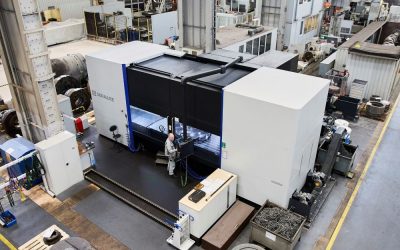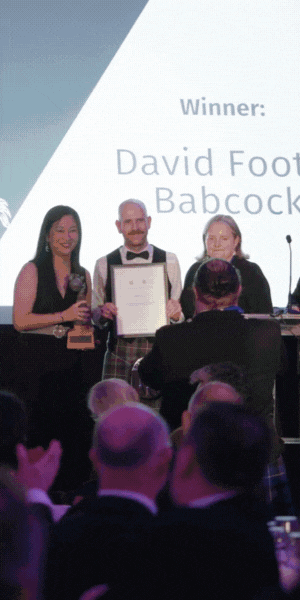Oslo-listed BW LPG, the world’s leading owner and operator of LPG vessels, recently completed the conversion of the main engine of BW Malacca to enable dual-fuel running. The last such conversion for a series of 15 LPG carriers commissioned by the company, the ship’s MAN B&W 6G60ME-C9.2 type engine was retrofitted to an MAN B&W 6G60ME-C9.5-LGIP dual-fuel type capable of operating on fuel oil and LPG.
The work was carried out at Yiu Lian Dockyards in Shenzhen, China, in conjunction with the vessel’s scheduled five-year docking and under the supervision of MAN PrimeServ, MAN Energy Solutions after-sales division. BW Malacca has since successfully passed the required sea trials and is back in service.
This lengthy conversion project has required close collaboration between the shipyard, BW and MAN PrimeServ. According to Pontus Berg, executive vice president (technical) at BW LPG: “We could not have accomplished this ambitious project on our own. Our success lies in close collaboration with many experts in their field.”
For MAN PrimeServ the experience has highlighted what it can deliver in terms of green engine retrofits. Michael Petersen, senior vice president and head of PrimeServ Denmark, adds: “As a low-carbon fuel, LPG is well on its way to becoming the new market standard in this segment. As we move towards a zero-carbon future amidst a strong, global push towards sustainability, these conversions showcase our dual-fuel engine portfolio that is future-proofed to handle whatever alternative fuels come to prominence in the decades ahead.”
MAN Energy Solutions originally announced the first four retrofit orders in September 2018 in advance of the official launch of the ME-LGIP engine at its Research Centre Copenhagen, exchanging the contract with BW LPG during the event. The successful conversion in late-October 2020 of the main engine aboard BW LPG’s BW Gemini made it the world’s first commercial vessel to be propelled by a two-stroke, LPG dual-fuel engine.
According to BW, when using LPG as fuel, the gas carrier’s output efficiencies rise by around 10% against fuel oil, generating notable gains in total voyage fuel-economics. By leveraging LPG as a marine fuel, BW LPG’s vessels benefit from savings due to lower fuel consumption and dual-fuel flexibility, which helps guard against price sensitivity to post-2020 fuel-price fluctuations. Furthermore, the ability to use LPG cargo as a supplemental fuel source also reduces time and costs relating to fuel bunkering.
BW LPG is committed to the principle of retrofitting as an alternative to newbuilding, and believes it offers significant environmental and economic benefits. The company states that compared with a newbuild, retrofitting an existing ship emits 97% less carbon during construction takes two months, compared to two years to complete, and does not add unneeded shipping capacity to the market. Retrofitting an LPG carrier with a dual-fuel engine costs US$8 to US$9 million, compared to around US$80 million to order a newbuild with the same technology.
Consequently, BW believes there is enormous scope for retrofitting main engines to meet green objectives. It calculates that more than half of the world’s current large gas carrier fleet, and up to 7500 merchant vessels, could be retrofitted with LPG propulsion systems, making the potential “tremendous”.
MAN Energy Solutions is also pursuing further green engine retrofit opportunities. The company has recently signed a Memorandum of Understanding with Stena Teknik, Stena’s in-house R&D division, and Proman, the world’s second largest methanol producer, for mutual cooperation on a project to retrofit MAN 48/60 engines to make them capable of both diesel and methanol operation.
Under the terms of the agreement, the project will start with an initial feasibility study, to investigate methanol combustion according to the Otto combustion principle, with MeOH port fuel injection. Once the feasibility study is completed, the second phase will involve the retrofit of an engine, or engines, following commissioning and field testing. The third and final phase would then involve the engine handover for commercial operation.
